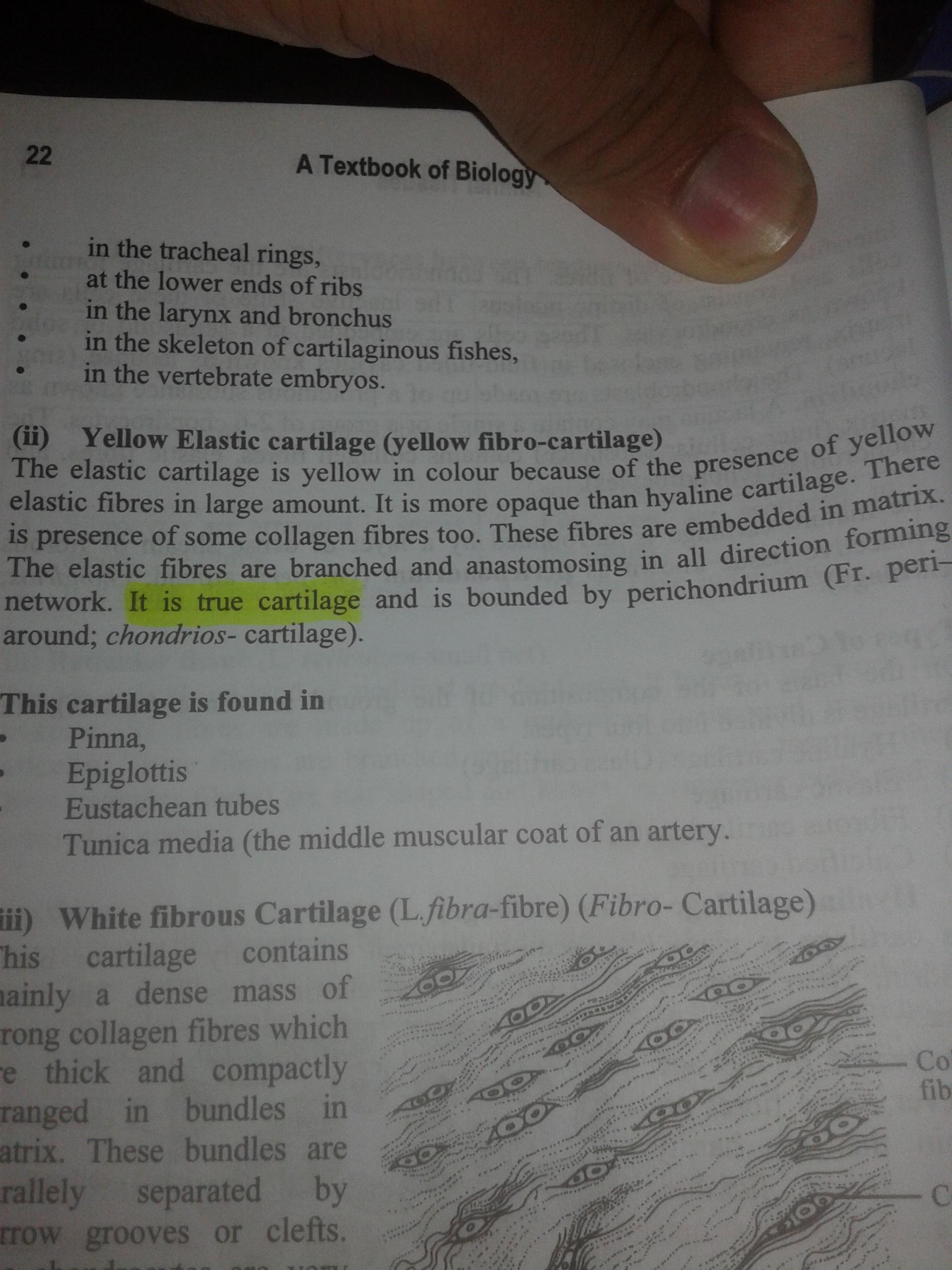My book has only mentioned the fact but no reason is given so I would like to know the reason for it. I would like to know what more to add in the body but the question just doesn't get posted.
-
1$\begingroup$ What research have you done , have tried googling it atleast? Question which doesn't show attempt are likely to be deleted. $\endgroup$– JM97Commented Jul 23, 2017 at 2:11
-
$\begingroup$ Yes i have already googled it even asked the same question but it always open wikipedia which donot provide me my answers $\endgroup$– Sachin GurungCommented Jul 23, 2017 at 2:49
-
$\begingroup$ Could you cite the book? $\endgroup$– JM97Commented Jul 23, 2017 at 2:58
-
$\begingroup$ A TEXT BOOK OF BIOLOGY $\endgroup$– Sachin GurungCommented Jul 23, 2017 at 3:25
-
$\begingroup$ author name pls $\endgroup$– JM97Commented Jul 23, 2017 at 4:27
1 Answer
True cartilage is something of a simplification or a misnomer, they are saying that it truly a form of cartilage and not another elastic tissue type. in fact "true cartilage" is a term coined by your book. They could have also said it's part of the cartilage family of cell/tissue types.
It's similar to cartilage under a microscope, structurally and has similar consituents, although yellow cartilage also contains elastin. If you were to dissect humans, you would probably find that there are a lot of variations of cartilage of different elasticity, midway in between both forms.
this page is full of info and pics:
It's a good idea to check wikipedia and 2-3 pages to find results to that kind of query, you will find fabulous resources, whereas on stack it is really for studies that take more than 20 minutes via google.
